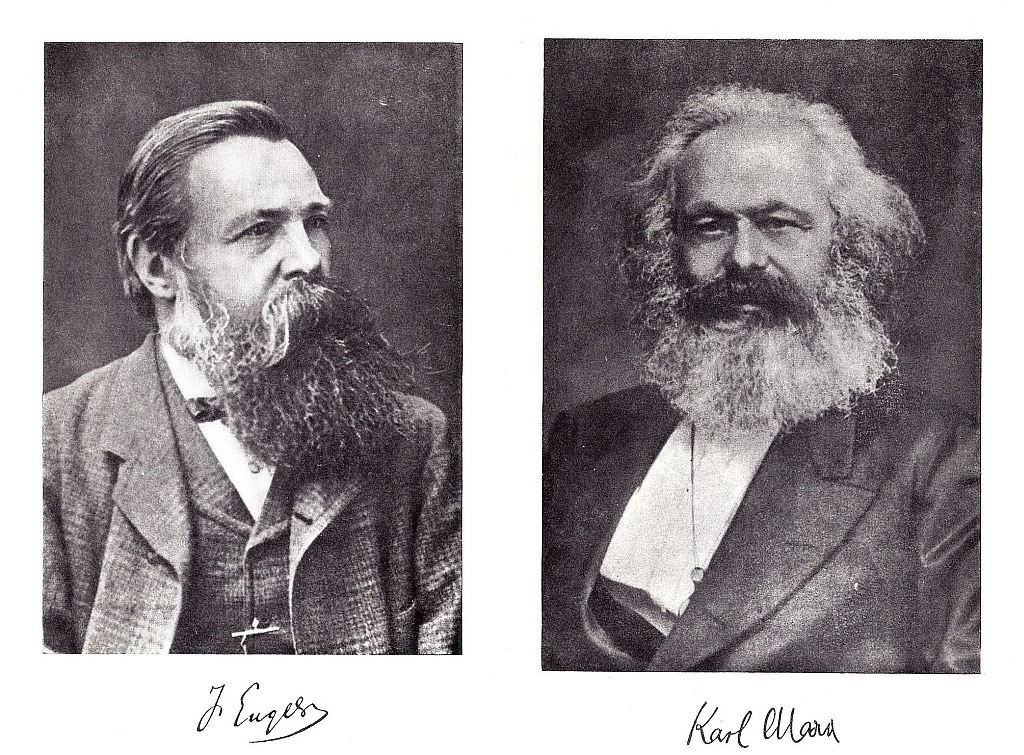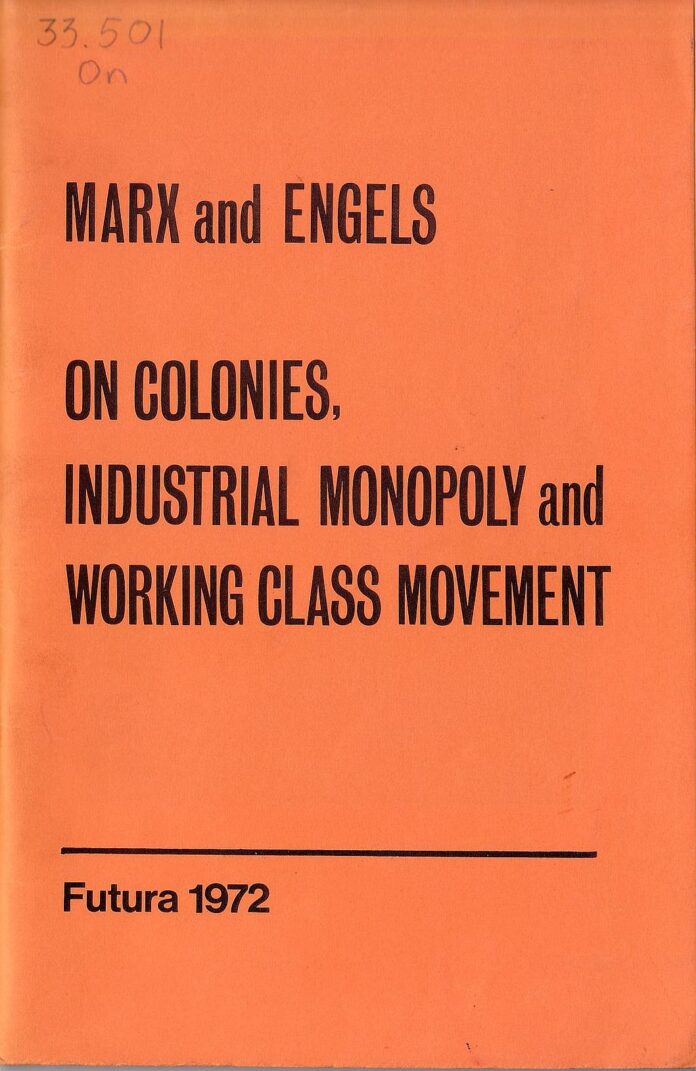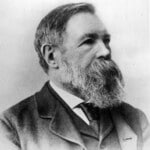About the Booklet:
Extract from articles and letters 1847-1894. Copenhagen, Publishing House Futura, 1972, 57 p.
Compiled and edited by Communist Working Circle, CWC.
Also published in a newer print edition, edited and with a foreword by Revolutionary Anti-Imperialist Movement, RAIM, and published by the Canadian Kersplebedeb Publishing in 2016, with a long newly written Introduction by Torkil Lauesen and Zak Cope. [149 p.] See more at leftwingbooks.net/
List of Abbreviations:
- MESW Karl Marx and Friedrich Engels: Selected Works, vol. I-II Foreign Languages Publishing House, Moscow 1951.
- KMC Karl Marx: Capital, vol. I-III Foreign Languages Publishing House, Moscow 1962.
- MESC Karl Marx and Friedrich Engels: Selected Correspondence Progress Publishers, Moscow 1965.
- MEOC Karl Marx and Friedrich Engels: On Colonialism Progress Publishers, Moscow 1968.
- MEOB Karl Marx and Friedrich Engels: On Britain Foreign Languages Publishing House, Moscow 1962.
Most of the articles in the book is printet in extracts. In the online edition the articles and letters are linked to the complete edition in Marxist Online Archive, MIA – some of the letters on MIA might not be complete. In a few cases there are minor differences in the text, due to different translation.
Quote by V.I. Lenin at p. 9 in the printed edition, see below the contents.

Contents
The Poverty of Philosophy
Manifesto of the Communist Party
Address of the Central Committee to the Communist League
Revolution in China and in Europe
The British Rule in India
The Future Results of the British Rule in India
Letter from Engels to Marx, Manchester, 23rd May 1856
English Ferocity in China
Persia and China
Letter from Engels to Marx, Manchester, 7th October 1858.
Letter from Marx to Engels, London, 17th November 1862.
Capital
Letter from Marx to Engels, London, 30th November 1867.
Letter from Marx to Kugelmann, London, 6th April 1868
Letter from Engels to Marx, Manchester, 18th November 1868
Letter from Engels to Marx, Manchester, 24th October 1869
Letter from Marx to Kugelmann, London, 29th November 1869
Letter from Marx to Engels, London, 10th December 1869
Letter from Marx to Meyer and Vogt, London, 9th April 1870
The English Elections
Letter from Marx to Liebknecht, London, 11th February 1878
Letter from Engels to Bernstein, London, 17th June 1879
Letter from Marx to Danielson, London, 19th February 1881
Letter from Engels to Kautsky, London, 12th September 1882
Letter from Engels to Bebel, Eastbourne, 30th August 1883
England in 1845 and in 1885
Letter from Engels to Bebel, London, 28th October 1885
Letter from Engels to Sorge, London, 7th December 1889
Letter from Engels to Sorge, London, 19th April 1890
Letter from Engels to Kautsky, Ryde, 4th September 1892
Letter from Engels to Sorge, London, 18th January 1893
Letter from Engels to Plekhanov, London, 21st May 1894
Quote by V.I. Lenin
At p. 9 in the printed edition.
“It must be observed that in Great Britain the tendency of imperialism to split the workers, to strengthen opportunism among them and to cause temporary decay in the working-class movement, revealed itself much earlier than the end of the nineteenth and the beginning of the twentieth centuries; for two important distinguishing features of imperialism were already observed in Great Britain in the middle of the nineteenth century – vast colonial possessions and a monopolist position in the world market. Marx and Engels traced this connection between opportunism in the working-class movement and the imperialist features of British capitalism systematically, during the course of several decades.”




























